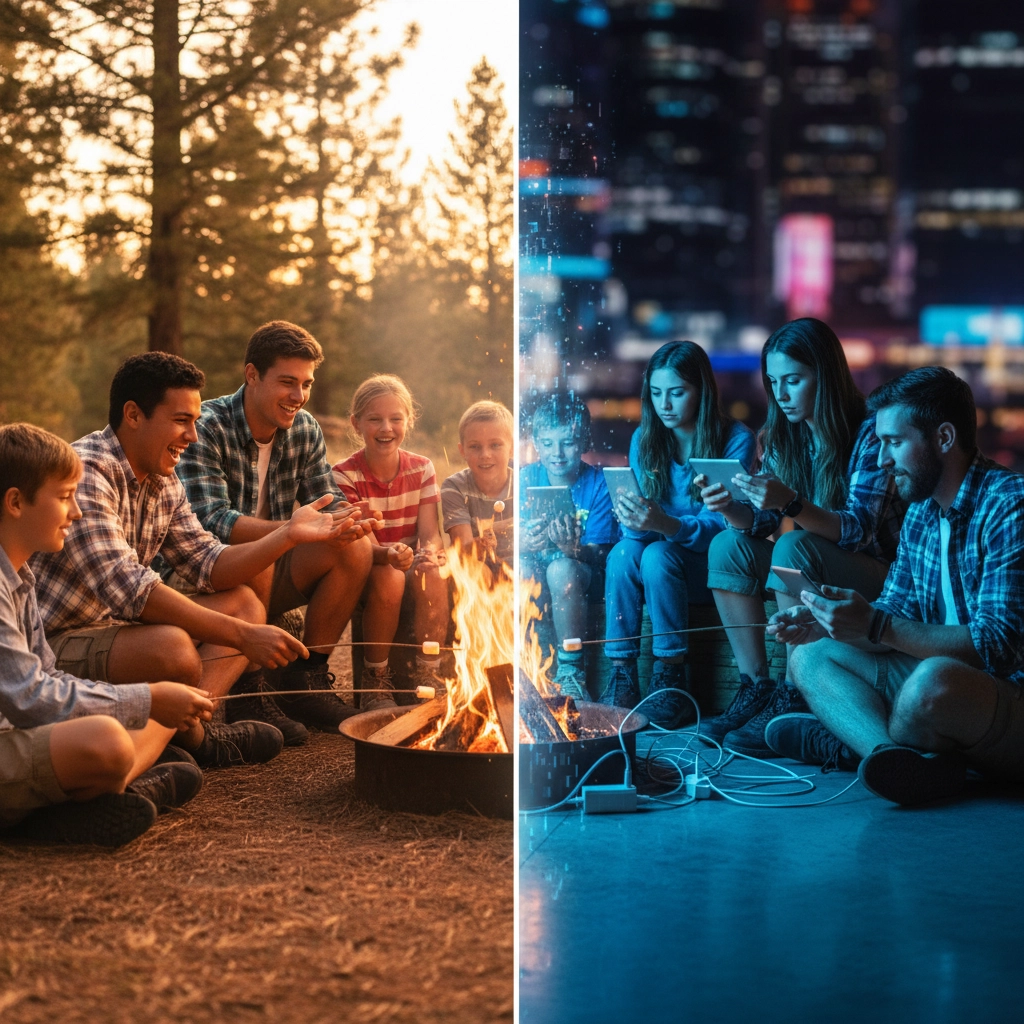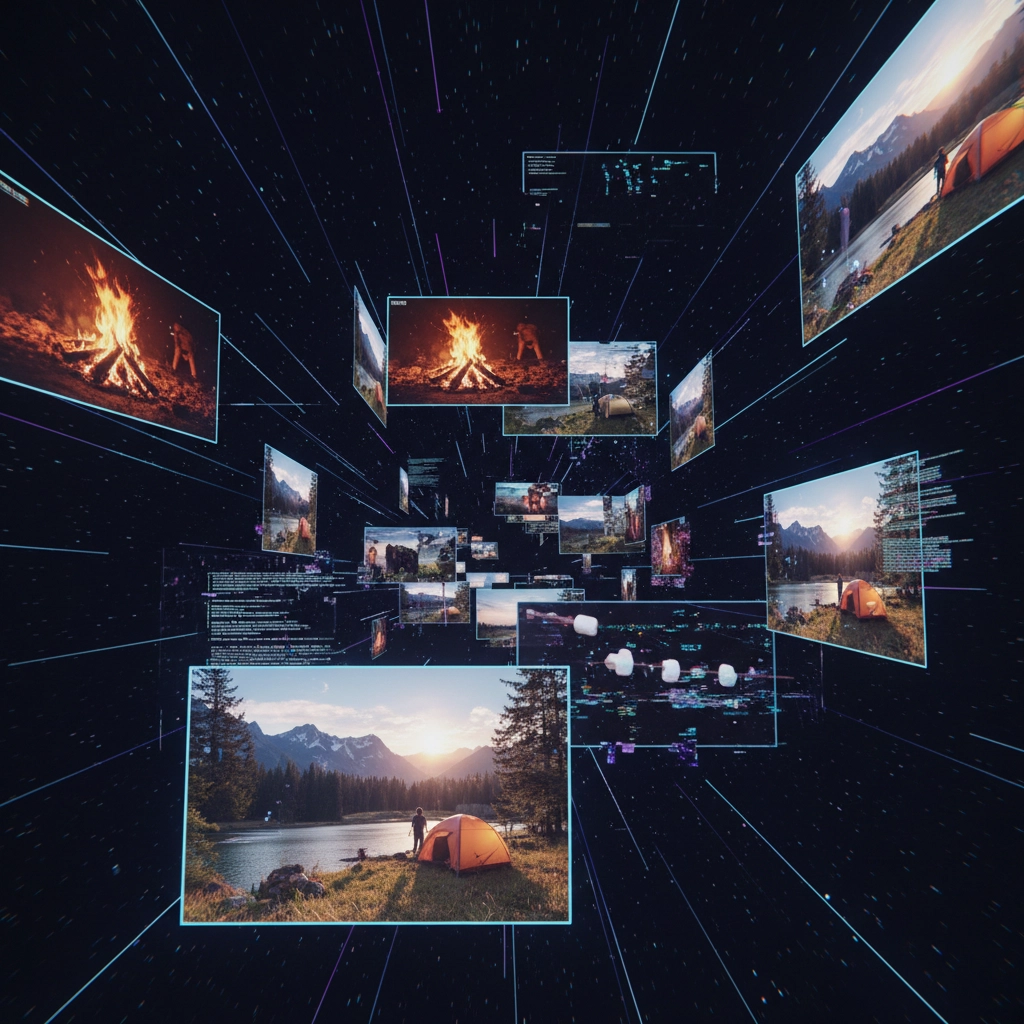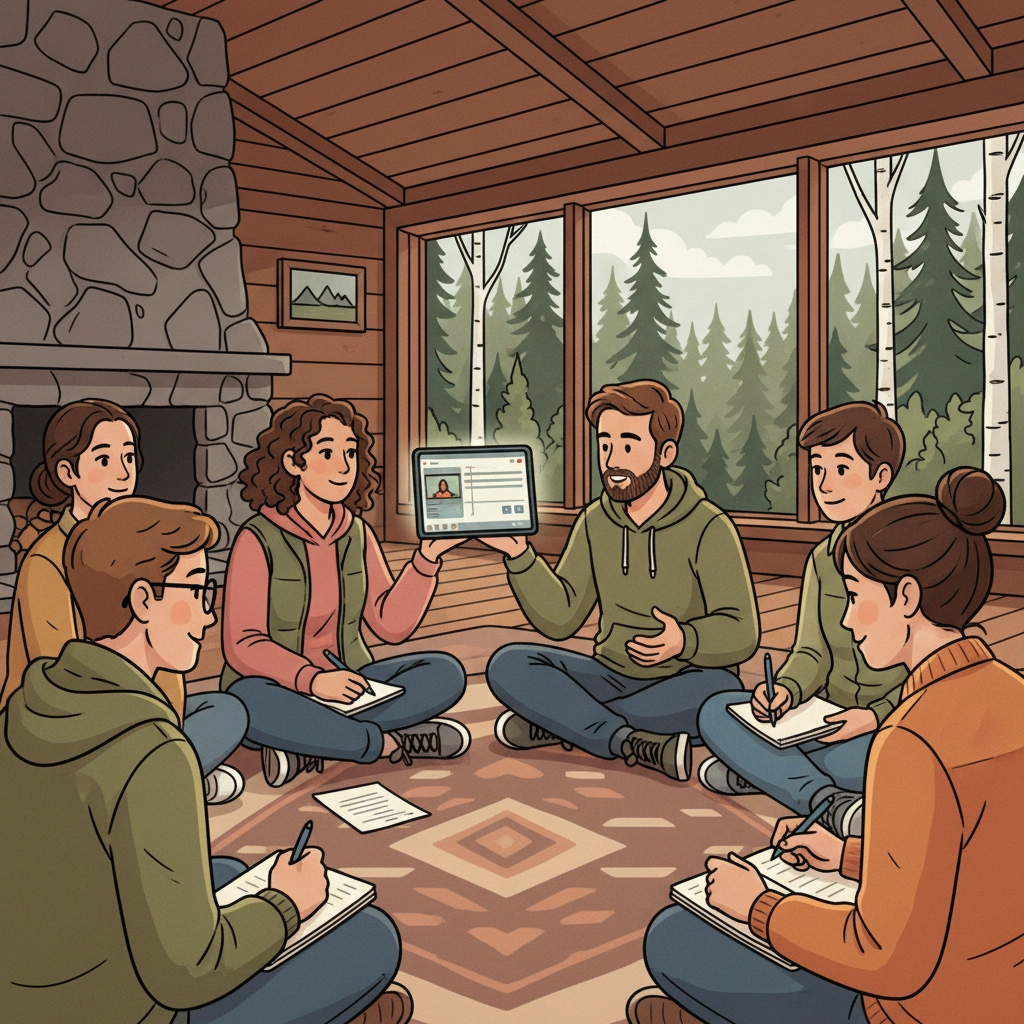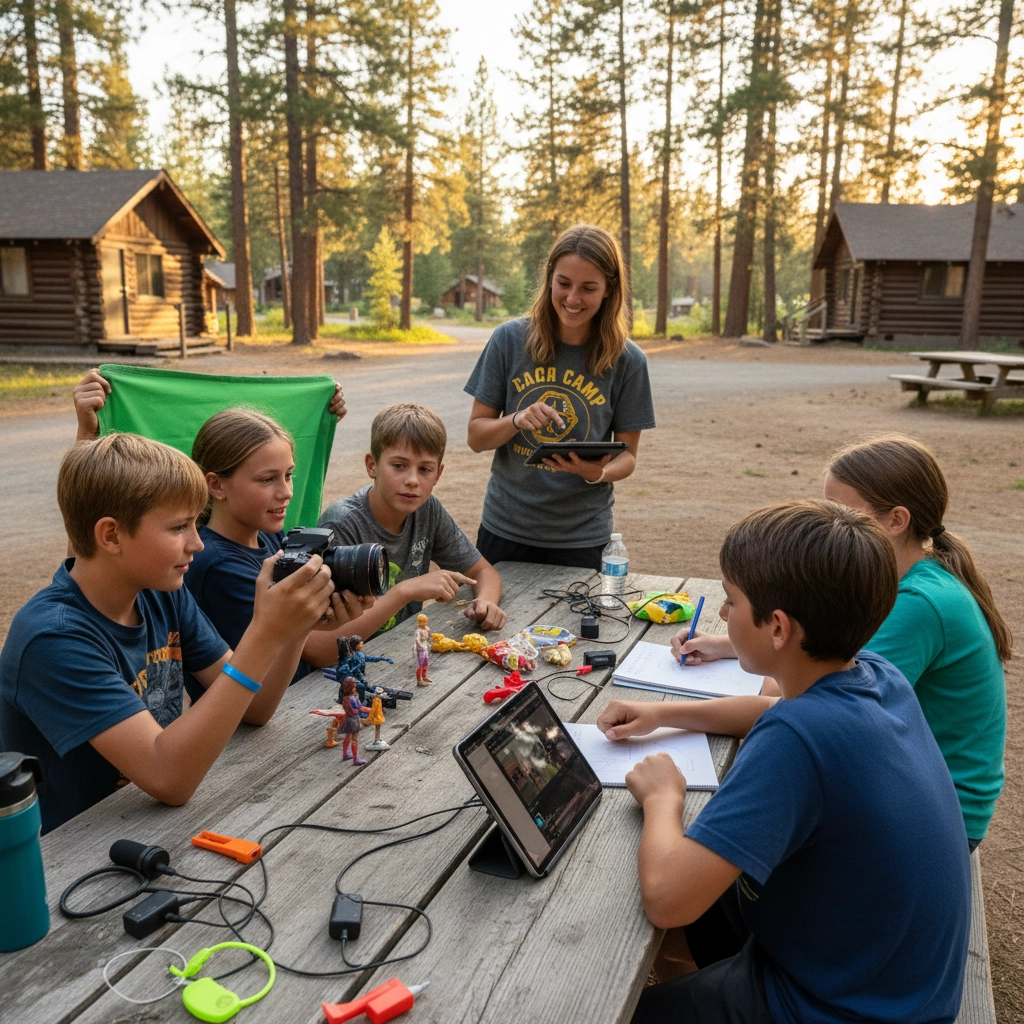The Summer Camp Daily Brief – October 17, 2025
- Matthew Kaufman

- Oct 17
- 5 min read
Good morning, camp world! Today we're diving into something that might sound a bit futuristic, but it's happening right now in your campers' digital lives. AI video tools are getting scary good at creating realistic content, and that means we need to get smart about how we handle video creation and media literacy at camp.
Ready to tackle this head-on? Let's break it down.
Story of the Day: AI Video Tools Are Here (And Kids Are Using Them)
The Safe AI for Children Alliance (SAIFCA) just dropped an urgent briefing about Sora 2, a new AI video tool that can create hyper-realistic generated video content. We're talking about technology that can make it look like anyone said or did anything on camera. The guidance warns that these tools are increasingly accessible and, well, let's just say they're ripe for misuse, especially by minors.
Why does this matter for your camp? Think about it, video is everywhere in camp life now. Promotional reels, daily recaps, cabin skits, talent shows, and those heartwarming parent updates we all love to create. But here's the thing: your campers, especially the older ones, are already experimenting with AI video tools to remix and create content.
Without proper guardrails, you might inadvertently end up hosting content that misleads, misrepresents, or creates identity issues. Deepfakes, false attributions, voices that sound like real people but aren't, it's all possible now, and it's getting easier every day.

SAIFCA's wake-up call is clear: we need to treat AI video as a serious design risk, not just a cool novelty. The good news? Camp is the perfect place to teach kids how to navigate this new landscape responsibly.
What's New This Week in the AI World
Let's catch up on what's been happening in the intersection of AI, kids, and education:
Meta Steps Up Parental Controls Meta is rolling out new parental controls specifically for teen interactions with AI chatbots. Parents will be able to block or restrict AI bot conversations and get limited visibility into what their kids are discussing with artificial intelligence.
California Takes a Measured Approach California's governor vetoed a stricter AI chatbot bill aimed at protecting minors, opting instead for requirements that chatbots clearly disclose they're not human and implement better content filtering for harmful material.
Teachers and Students Are Already All-In on AI A recent EdWeek report shows some eye-opening numbers: 85% of teachers and 86% of students used AI tools during the 2024-25 academic year. But here's the concerning part, 70% of teachers worry that AI is undermining critical thinking skills, and many students report feeling less connected to their teachers.
The theme emerging across AI and education commentary is consistent: AI can shortcut effort, but often at the cost of depth, agency, and genuine human connection.
Why This Matters for Your Camp Operations
Here's where this gets practical for camp professionals like us:
Your Media is at Risk Camp videos, reels, slideshows, and social content may increasingly be produced or remixed by staff or campers using AI tools. Understanding these risks helps you set healthy boundaries and create smart policies before problems arise.
Camp as a Teaching Lab Your camp is actually a semi-controlled environment where you can model safe, intentional use of video AI. You can teach kids how to remix content responsibly, properly cite sources, preserve context, and avoid deception, all while having fun with the technology.
Shaping Future Media Habits Because younger children (Gen Alpha) are growing up immersed in this landscape, the habits they form now matter enormously. The tech tools your staff and campers use today will shape their media literacy and critical thinking muscles for life.
This is exactly the kind of real-world problem-solving that camp does best. Instead of kids mindlessly consuming AI-generated content, we can teach them to be thoughtful creators and critical consumers.

Five Actionable Moves for This Week
Ready to get ahead of this trend? Here are five concrete steps you can take right now:
1. Draft a Video-AI Use Policy Even if it's simple, create clear rules for your camp's media labs and staff. Include basics like:
AI-generated elements must be clearly labeled
Don't substitute real voices or faces without explicit permission
Always preserve original footage: never delete raw files after AI modifications
All AI-enhanced content needs supervisor approval before sharing
2. Create a Video Remix Challenge with Guardrails Turn this into a learning opportunity! Ask campers to remix a 30-second camp video using available AI tools, then hold a screening and discussion session. Ask questions like: "What parts felt 'off' to you?" "What might trick someone who wasn't there?" "How can you tell what's real?" Use their observations to sharpen everyone's media literacy skills.
3. Teach Source and Provenance Practices In any media creation activity, consistently ask: "Where did this audio or video element come from? Who originally made it? Can you trace all the edits?" Make attribution and transparency habits, not afterthoughts.
4. Monitor AI Video Tools on Devices Ensure that any video editing app or plugin on your camp's computers is approved and appropriate. Periodically scan for unauthorized tools or browser add-ons that automatically fill or generate content without clear disclosure.
5. Run Staff Mini-Training Sessions In your next staff meeting, share SAIFCA's briefing and pose scenario questions: "What if a camper uses AI to generate a fake camp announcement video? What would our response be?" Role-play your protocols now, before you need them in real situations.

Connecting the Dots: Why This Fits Camp's Mission
Let's zoom out and see how this connects to what we're already doing well at camp:
Staff Training Evolution Your counselors and creative team (many of them Gen Z) need explicit training in AI media literacy and ethics. This isn't optional fluency anymore: it's a necessary skill for anyone working with young people and digital content.
Child Development in Action Young children are increasingly both consuming and producing media. Introducing them early to media ethics and critical thinking helps scaffold their ability to understand and create narratives. Plus, the process of explaining concepts (rather than just creating) strengthens their cognitive frameworks.
Bridging Generational Gaps Your Gen Z staff may already be experimenting with AI tools, and their fluency can be a huge asset when channeled with proper ethics training. Meanwhile, Gen Alpha campers will watch, mimic, and internalize whatever norms you establish. You get to influence this crucial handoff between generations.
This is problem-solving at its finest: exactly what camp has always been about. We're not just teaching kids to swim and make friendship bracelets. We're teaching them to navigate an increasingly complex world with integrity, critical thinking, and genuine human connection.
The Bottom Line for Camp Professionals
The AI revolution isn't coming: it's here, and your campers are already living in it. But that's not something to fear; it's something to prepare for thoughtfully.
Your role as camp professionals has always been to help young people develop the skills they need to thrive in the real world. Today, that includes media literacy, digital ethics, and the ability to distinguish between authentic and artificial content.
The beautiful thing about camp is that we can teach these skills in context, with real relationships and immediate feedback. We can model the kind of thoughtful, intentional technology use that creates rather than consumes, that builds rather than isolates.
What will you try first? Maybe start with that staff training session, or draft a simple AI policy for your media activities. The key is to start somewhere and build from there.
Remember, this isn't about becoming tech experts overnight. It's about staying true to camp's core mission: helping young people solve real problems, think critically, and build genuine connections: even in an age of artificial intelligence.

Want more insights on navigating the intersection of technology and youth development? Follow@mattlovescampon Instagram for daily updates, and join our community of camp professionals atwww.ilove.campwhere we're building the future of youth development together.



Comments